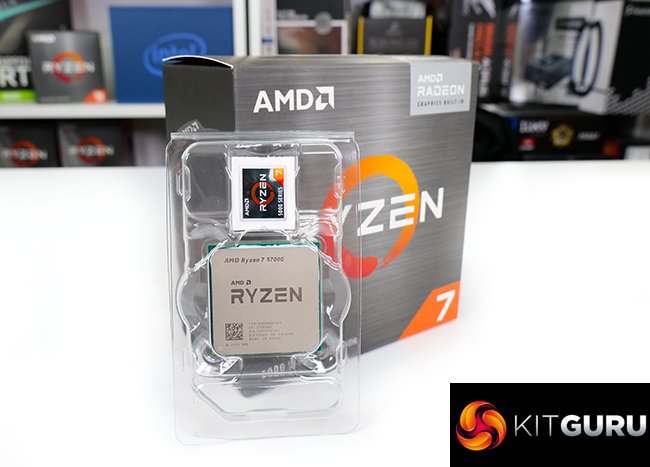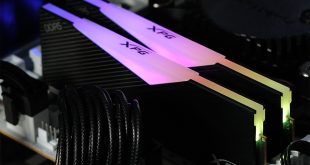To summarise, the Ryzen 7 5700G is a little slower than the Core i7-11700K in terms of compute workloads but that’s OK given the price difference. It is notably slower than the eight-core Zen 3 Ryzen 7 5800X. So clearly, that 16MB reduction in L3 cache and slower clocks through a more restricted TDP have strong downsides for AMD’s APU.
Versus the Ryzen 5 5600X, the Ryzen 7 5700G is typically faster in CPU workloads, aside from single-threaded scenarios. Here, the 5700G’s two extra cores more than offset the 5600X’s doubled L3 cache capacity.
GPU performance is where the Ryzen 7 5700G somewhat shines. Reasonable 1080p gaming is certainly a possibility, even with some AAA titles at sensible IQ settings.
The AMD chip is vastly superior to Intel’s Core i7-11700K with iGPU. So much so, that there is no real comparison for Intel’s much weaker UHD 750 graphics. The performance uplift for Ryzen 7 5700G versus the 2-year old Ryzen 5 3400G is often to the tune of 15-20%.
Enough of my complaints about application of old graphics technology though. On balance, the Ryzen 7 5700G is a very compelling option for those with specific use cases for an APU. You get the best mixture of CPU and GPU performance from a processor with graphics at this price point. And I guess you can be slightly at peace with the knowledge that you haven’t paid ludicrous pricing for an entry-level discrete GPU.
Now I can hear you questioning the logic of an APU when a standalone processor and graphics card may be better options if you have a specific bias for CPU or GPU performance. There are, however, convincing applications where an APU makes sense; mini-ITX in truly SFF systems that can still actually game. Perhaps you have greater preference for CPU performance but want some casual gaming now and then – the 5700G is probably a better option than the 5600X+GPU alternative in that scenario.
Or perhaps – like myself – you want a reasonably powerful chip with plenty of threads for your server and VM host, but you don’t want to use the only PCIe slot in a Mini-ITX motherboard on a seldom used graphics card. I can see that home server use case being quite appealing indeed, certainly from my own perspective at least.
Realistically though, if you are a gamer first and foremost, a combination of a budget CPU like the Core i5-11400F and a GTX 1050 Ti will be a far superior gaming option for £320.
The Ryzen 7 5700G MSRP is $359 USD and £309.99 in the UK at major e-tailers such as Overclockers UK.
It is good to see AMD finally offering the latest consumer APU to DIY builders once again. The whole OEM-only Ryzen 4000G strategy was just bizarre. I just wish we had been treated to the latest-and-greatest in graphics technology, though.
But in terms of CPU with iGPU performance, the Ryzen 7 5700G APU is far superior to what Intel currently offers. AMD’s chip truly does excel in the realms of balance, and it is a now market-leading option for DIY builders with genuine APU use cases.
Discuss on our Facebook page HERE.
Pros:
- Class-leading graphics performance
- Truly a reasonable 1080p gaming option, even with some AAA titles
- Good CPU side performance – sits between Ryzen 5 5600X and Ryzen 7 5800X
- Easy to handle power requirements and thermals
- Some tuning capacity through overclocking and PBO
Cons:
- Older Vega graphics architecture is disappointing when consoles get RDNA 2
- Only PCIe Gen 3
- 16MB L3 cache hurts performance
KitGuru says: A good option for those who have specific APU use cases. But individuals interested primarily in gaming will likely be better served by a lesser CPU and a discrete GPU combination.
 KitGuru KitGuru.net – Tech News | Hardware News | Hardware Reviews | IOS | Mobile | Gaming | Graphics Cards
KitGuru KitGuru.net – Tech News | Hardware News | Hardware Reviews | IOS | Mobile | Gaming | Graphics Cards





